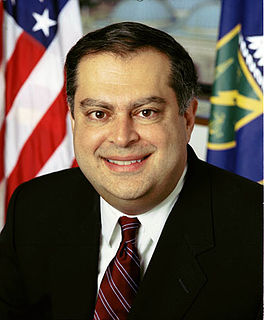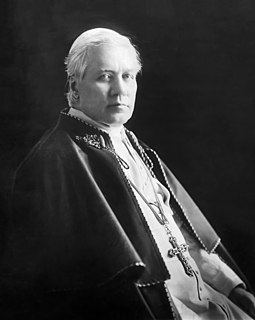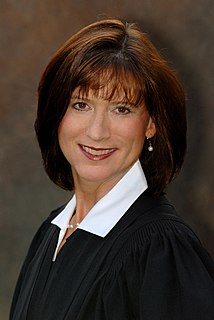A Quote by James Madison
The preservation of a free government requires not merely that the metes and bounds which separate each department of power be invariably maintained; but more especially that neither of them be suffered to overleap the great Barrier which defends the rights of the people. The Rulers who are guilty of such an encroachment, exceed the commission from which they derive their authority and are Tyrants. The people who submit to it are governed by laws made neither by themselves nor by an authority derived from them, and are slaves.
Quote Topics
Authority
Barrier
Bounds
Commission
Department
Derive
Derived
Each
Encroachment
Exceed
Free
Free Government
Governed
Government
Great
Guilty
Invariably
Laws
Made
Maintained
Merely
More
Neither
Nor
People
Power
Preservation
Requires
Rights
Rulers
Separate
Submit
Suffered
Them
Themselves
Tyrants
Which
Related Quotes
In truth, there never was any remarkable lawgiver amongst any people who did not resort to divine authority, as otherwise his laws would not have been accepted by the people; for there are many good laws, the importance of which is known to be the sagacious lawgiver, but the reasons for which are not sufficiently evident to enable him to persuade others to submit to them; and therefore do wise men, for the purpose of removing this difficulty, resort to divine authority.
How can I be expected to believe that this same racial discrimination which has been the cause of so much injustice and suffering right through the years, should now operate here to give me a fair and open trial?....consider myself neither morally nor legally obliged to obey laws made by a Parliament in which I am not represented. That the will of the people is the basis of the authority of government, is a principle universally acknowledged as sacred throughout the civilized world.
The error seems not sufficiently eradicated, that the operations of the mind, as well as the acts of the body, are subject to the coercion of the laws. But our rulers can have authority over such natural rights only as we have submitted to them. The rights of conscience we never submitted, we could not submit. We are answerable for them to our God. The legitimate powers of government extend to such acts only as are injurious to others.
The federal government neither has the power to site transmission lines, nor do we build them. That's done, as people know, in their own communities. The siting decisions and the permitting is done at the local level, or by state governments if it's interstate in nature. And federal government - this is one area we have no authority.
The essences of the Gods never came into existence (for that which always is never comes into existence; and that exists for ever which possesses primary force and by nature suffers nothing): neither do they consist of bodies; for even in bodies the powers are incorporeal. Neither are they contained by space; for that is a property of bodies. Neither are they separate from the first cause nor from one another, just as thoughts are not separate from mind nor acts of knowledge from the soul.
The militia is the natural defense of a free country against sudden foreign invasions, domestic insurrections, and domestic usurpations of power by rulers. It is against sound policy for a free people to keep up large military establishments and standing armies in time of peace, both from the enormous expenses, with which they are attended, and the facile means, which they afford to ambitious and unprincipled rulers, to subvert the government, or trample upon the rights of the people.
Liberalism is that principle of political rights, according to which the public authority, in spite of being all-powerful, limits itself and attempts, even at ist own expense, to leave room in the state over which it rules for those to live who neither think nor feel as it does, that is to say as do the stronger, the majority.
[Before the Civil Rights Act of 1964], many governments in southern states forced people to segregate by race. Civil rights advocates fought to repeal these state laws, but failed. So they appealed to the federal government, which responded with the Civil Rights Act of 1964. But this federal law didn't simply repeal state laws compelling segregation. It also prohibited voluntary segregation. What had been mandatory became forbidden. Neither before nor after the Civil Rights Act were people free to make their own decisions about who they associated with.
When, in the course of human events, it becomes necessary for one people to dissolve the political bands which have connected them with another, and to assume among the powers of the earth the separate and equal station to which the laws of nature and of nature's God entitle them, a decent respect to the opinions of mankind requires that they should declare the causes which impel them to the separation.
...the great movement of apostasy being organized in every country for the establishment of a One-World Church which shall have neither dogmas, nor hierarchy, neither discipline for the mind, nor curb for the passions, and which, under the pretext of freedom and human dignity, would bring back to the world (if such a Church could overcome) the reign of legalized cunning and force, and the oppression of the weak, and of all those who toil and suffer. [...] Indeed, the true friends of the people are neither revolutionaries, nor innovators: they are traditionalists.
A constitution, therefore, is to a government what the laws made afterwards by that government are to a court of judicature. The court of judicature does not make the laws, neither can it alter them; it only acts in conformity to the laws made: and the government is in like manner governed by the constitution.
As the people are the only legitimate fountain of power, and it is from them that the constitutional charter, under which the several branches of government hold their power, is derived, it seems strictly consonant to the republican theory, to recur to the same original authority, not only whenever it may be necessary to enlarge, diminish, or new-model the powers of the government, but also whenever any one of the departments may commit encroachments on the chartered authorities of the others.































